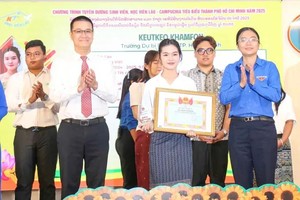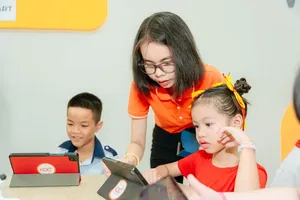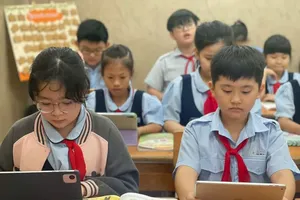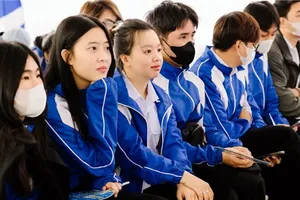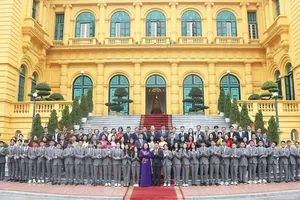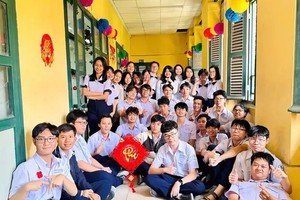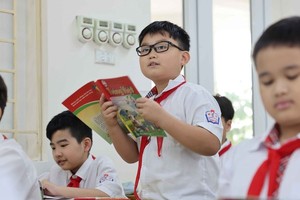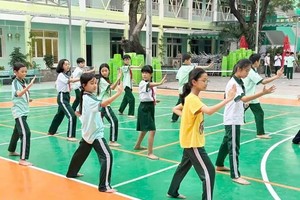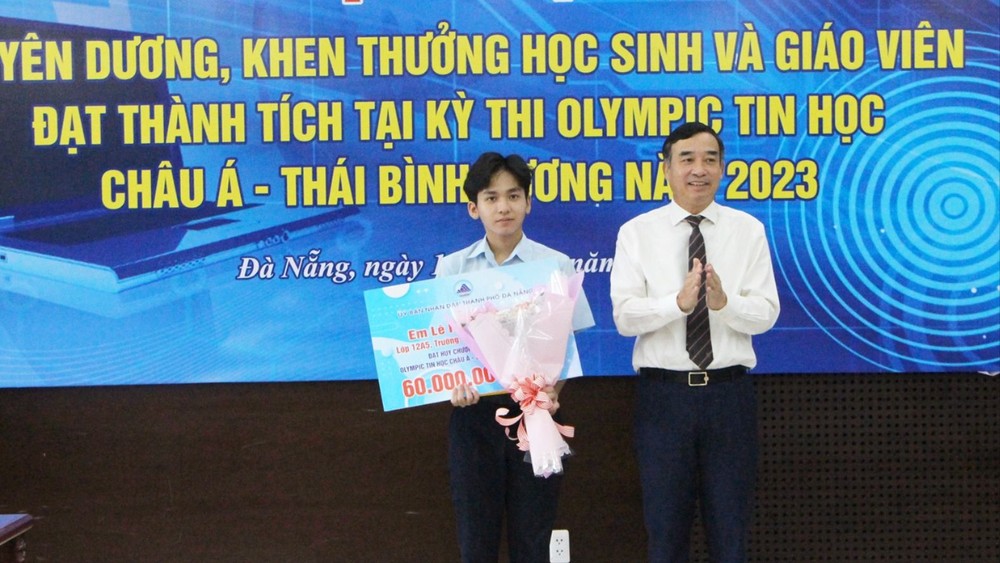
In January 2022, the Ministry of Education and Training organized a conference to summarize the Project ‘Development of High Schools for the Gifted in the period 2010-2020’. One year later, new regulations on the operation of specialized high schools were issued, aiming to improve the quality of specialized school operations.
After more than 10 years of implementing the Project ‘Development of the high schools for the gifted in the period 2010-2020’, the number of specialized schools across the country has increased from 68 schools in 2010 to 77 schools in 2020. Each province and centrally run city have 1-2 specialized schools. To date, of 77 specialized schools, 60 establishments have been recognized as national standards thanks to huge investments in upgrading facilities and teaching equipment.
Although the number of students at specialized schools only accounts for about 2.7 percent of the total number of high school students in the country, they have brought gold, silver and bronze medals from regional and international Olympics for the country.
Specifically, from 2013 to 2022 alone, Vietnamese students' achievements at international competitions increased in both quantity and quality. Particularly for mountainous provinces and difficult areas, specialized schools have significantly contributed to the improvement of the teaching and learning quality.
Currently, most provinces and cities have stipulated specific policies to attract good teachers to specialized schools; At the same time, local authorities have covered the fees of computer and foreign language training courses for management staff and teachers of specialized schools.
Minister of Education and Training Nguyen Kim Son commented that investment in the specialized school system in recent years has been on the right track, creating a strong change in improving the quality of education. However, all localities believe that the Ministry of Education and Training needs to soon complete the Project to continue yielding more fruitful outcomes.
Recently, at the meeting and commending students who won the 2023 Olympic and International Science and Technology prizes, Acting President Vo Thi Anh Xuan requested the education and training sector to continue to propose policies to discover and foster talents. Specialized school is oriented towards helping students become potential human resources for the country’s future development.
To achieve that goal, according to Professor Nguyen Lan Dung from the Institute of Microbiology and Biotechnology under the Hanoi National University, training must synthesize the strength of many resources as a solution to connect high schools and universities, even taking advantage of the facilities and teaching staff of universities to improve the operational efficiency of specialized schools.
In addition to existing achievements, the Ministry of Education and Training reported that the specialized school system still has some limitations. Some specialized schools have not met national standards while others have heavily focused on fostering excellent students without attention to practical skills, experiments, scientific research, and developing soft skills for students and the connection between high school and university is still wide.
Faced with that reality, the Ministry of Education and Training requires localities not to view specialized training solely for the purpose of achievements and awards. Teachers must comprehensively teach students, including non-specialized subjects or else it will lead to students having knowledge bias. It is necessary to define special educational methods that are applied in schools for the gifted with the orientation toward the promotion of self-study capacity and encourage talent development.
In recent years, in addition to specialized schools, many localities have also built high-quality school systems and advanced schools to meet the diverse learning needs of students. In some places, specialized schools are developed according to a high-quality model; for example, in addition to Le Hong Phong High School for the Gifted and Tran Dai Nghia High School for the Gifted, the city also allowed enrollment of 10th-grade students at a number of other public high schools, and at the same time develops three public high schools following advanced models.
Meanwhile, the advanced school model has not made an outstanding mark in creating a source of excellent students. Therefore, an educator who is formerly the principal of a public high school in Ho Chi Minh City recommends that responsible agencies should comprehensively evaluate the effectiveness of specialized training models in public schools to avoid waste in investments.
According to Associate Professor Tran Xuan Nhi, social contributions are for normal training meanwhile state budget should pour into special training to make significant contributions to the training improvement of high-quality human resources for localities.
In addition, experts and educators are currently expecting that the Ministry of Education and Training should make statistics on how many specialized school students work in the correct majors of training at the high school level, and how many of them establish careers in foreign countries. The Ministry’s statistics will serve as a basis for quantifying the future mechanisms and policies.









